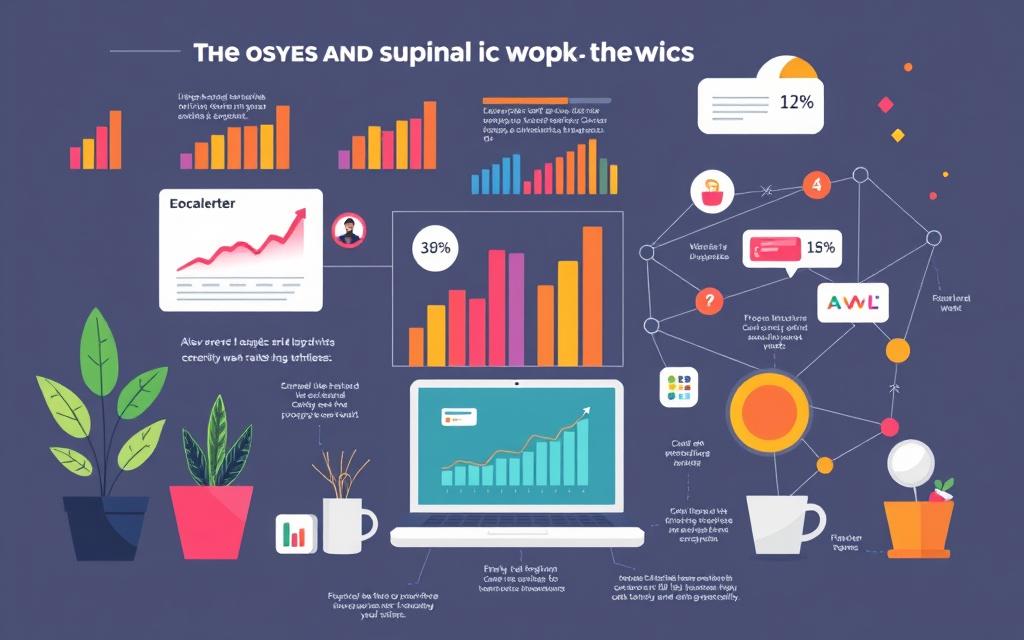In the rapidly evolving workplace, cultivating strong leadership skills is vital for modern managers. Today’s leaders must foster effective leadership within their teams, driving not only performance but also engagement and morale. Notably, Gallup’s research indicates that business units with high employee engagement experience a 21% boost in productivity, highlighting the impact of leadership on team dynamics. Furthermore, when managers express appreciation for their staff, it can lead to a staggering 60% increase in engagement, underscoring the importance of personal development in leadership roles.
As you navigate the challenges of management, understanding the nuances between leadership and management can empower you to enhance your approach. Managers dedicating resources to developing their teams not only solve conflicts, an area consuming at least 24% of their time, but also contribute to a culture of resilience and adaptability. With the right leadership skills, your ability to connect with team members, advocate for professional growth, and handle change can significantly influence the overall success of your organization.
The Importance of Leadership Skills in Management
Understanding the distinction between leadership vs. management is essential for effective management. Managers typically focus on processes and practicalities necessary for achieving company goals. Leaders, by contrast, inspire and motivate staff towards a shared vision. Both roles are critical for overall success, as an effective manager can smoothly transition between leading and managing.
Understanding Leadership vs. Management
Successful managers harness the importance of leadership skills to create a harmonious balance between task completion and team dynamics. Leadership involves guiding a team with vision and purpose, whereas management emphasizes planning, organizing, and controlling resources. Successful navigation of these realms can lead to improved employee engagement, enhanced morale, and better communication. Organizations that recognize this balance tend to foster a work environment that encourages collaboration and trust.
Why Leadership Skills are Essential for Success
Leadership skills equip you to effectively navigate change, empowering employees while increasing team involvement. Research from Siena Heights University emphasizes how leadership development is integrated into business programs, showcasing the critical nature of these skills in management. Without strong leadership, organizations struggle with performance issues that can impact productivity, efficiency, and employee motivation.
- Improved communication enhances collaboration.
- Better work environments drive productivity.
- Increased efficiency leads to less wasted effort.
- Reduced mistakes lower operational risks.
- Motivated employees achieve higher performance.
- Setting a positive example encourages others.
- Inspiring hard work fosters a culture of excellence.
- Creating a strong vision aligns team efforts.
- Supporting employees keeps them engaged in organizational goals.
Leaders who prioritize these elements demonstrate the significance of the importance of leadership skills within their organizations. They instill a sense of purpose in their teams, inspiring individuals to pursue common goals. By maintaining focus on organizational direction and providing necessary resources, they ensure their teams can thrive in dynamic environments. Ultimately, strong leadership is tied directly to the success of managers and the effectiveness of their teams.
Key Skills for Modern Leaders
In today’s dynamic business environment, mastering key leadership skills stands as a priority for effective management. Effective communication and decision-making skills play a crucial role in shaping how leaders guide their teams towards success. Understanding these skills is integral, especially since studies show that between 38% and over 50% of new leaders fail within their first 18 months. A strong foundation in effective communication can significantly reduce this risk.
Effective Communication
Effective communication is not just about conveying messages. It involves active listening, providing constructive feedback, and fostering an environment where open dialogue prevails. Leaders like Indra Nooyi, former chairperson and CEO of PepsiCo, demonstrated the power of clear communication through various channels, including her approach to blogging, which engaged employees and reinforced transparency. Good communication skills allow leaders to embody honesty and commitment, with their team mirroring these values. In organizations with flattened structures, the ability to break down complex ideas into simpler terms becomes essential for enhancing team understanding and effectiveness.
Decision-Making Capabilities
Decision-making skills are part and parcel of effective leadership. Modern leaders constantly face choices that can profoundly impact their organization. They must develop a rigorous approach to analysis, ensuring they make informed and rational decisions. High emotional intelligence further aids this process, enabling leaders to manage the diverse emotional landscapes within their teams. Influential figures such as Bill Gates and Tim Cook exemplify this by emphasizing the importance of empowerment and resilience in decision-making processes. They create environments where creativity flourishes, encouraging innovation to navigate disruptions effectively and shape a compelling vision for the future. The synergy of advanced decision-making skills and effective communication ultimately drives high performance across teams.
| Leadership Skill | Description |
|---|---|
| Effective Communication | Conveying messages, active listening, and providing feedback to foster team collaboration. |
| Decision-Making Skills | Evaluating options rationally to make informed choices impacting organizational success. |
| Emotional Intelligence | Understanding and managing emotions to build trust and engage effectively with the team. |
| Strategic Thinking | Anticipating future trends and making decisions that align with long-term organizational goals. |
Emotional Intelligence: A Cornerstone of Leadership
In the realm of strong leadership, emotional intelligence (EQ) stands out as a pivotal attribute. This quality not only enables you to understand your own emotions but also helps you navigate the feelings and motivations of those around you. Embracing emotional intelligence fosters a productive workplace environment, crucial for building relationships that enhance team dynamics and morale.
Understanding Emotional Intelligence
Emotional intelligence plays a significant role in leadership effectiveness. Research shows that 71 percent of employers prioritize emotional intelligence over technical skills during candidate evaluations. Leaders equipped with high EQ are proven to be better performers. Studies suggest that empathy ranks as the most critical leadership skill, with leaders demonstrating strong empathetic abilities performing over 40 percent better in coaching, engagement, and decision-making. Furthermore, only 10 to 15 percent of individuals possess genuine self-awareness, even though 95 percent think they do. This highlights the need for leaders to cultivate not just self-awareness but also an understanding of the emotional landscapes of their teams.
Building Strong Relationships with Teams
Effective leadership hinges on building strong relationships with team members. Managers who exhibit empathy are often seen as more capable by their supervisors. In fact, a study by the Center for Creative Leadership revealed that empathetic managers foster better performance among their direct reports. Notably, research indicates that unaddressed conflicts can drain approximately eight hours of company time weekly through gossip and other distractions. By prioritizing emotional intelligence, you alleviate such issues and promote a respectful workplace culture. According to a survey by the Society for Human Resource Management, 72 percent of employees believe that respectful treatment is crucial for job satisfaction.
As you develop your leadership skills, remember that emotional intelligence is not solely advantageous for your professional journey. It is essential for effective board service and navigating complex career paths. Active listening, probing meaningful questions, and remaining open to different perspectives are all indicators of a high EQ. Prioritizing the cultivation of emotional intelligence will lead to a more engaged, productive, and satisfied team.
Team Leadership and Motivation
Effective team leadership plays a crucial role in employee motivation and engagement. You can significantly influence how your team feels about their work through your actions and communication style. Leaders should aim to create an environment where team members can thrive, understanding that their contributions are valued and recognized.
Fostering Team Engagement
Fostering engagement among your team involves establishing strong connections and clear communication channels. When employees comprehend how their efforts contribute to overall goals, they become more invested in their tasks. Implementing practices such as open discussions, collaborative decision-making, and acknowledging individual contributions can enhance engagement levels. Remember the importance of trust; without it, employees find it hard to engage fully.
Strategies for Employee Motivation
Your approach to employee motivation can set a positive tone for the entire team. Consider using the following strategies:
- Recognize achievements to instill a sense of accomplishment.
- Use constructive feedback to foster a culture of learning and growth.
- Encourage autonomy by allowing team members to manage certain responsibilities.
- Maintain a positive attitude, which inspires others to mirror that energy.
Motivated employees are more engaged, resulting in better morale and improved performance. It’s essential to communicate goals clearly, ensuring they are specific, measurable, achievable, and time-bound. Being a role model by demonstrating integrity and a continuous desire to learn can keep motivation levels high.
Handling Performance Issues
Addressing performance issues constructively can aid in team improvement and morale. Focus on identifying challenges first and work collaboratively with your team to develop solutions. Recognizing that everyone has unique contributions and strengths helps in handling issues effectively.
Encouraging discussions and providing meaningful feedback are vital. Employees should feel safe discussing obstacles without fear of reproach. With effective team leadership, your approach to performance management can transform potential conflicts into opportunities for growth and engagement.
Adaptability in a Changing Work Environment
In today’s fast-paced work environment, leaders face the continuous challenge of adaptability. The ability to adjust one’s approach in response to rapid changes has become increasingly essential. This skill significantly influences leadership effectiveness and team dynamics. Organizations that emphasize adaptability often experience enhanced success. Here’s a closer look at how leaders can effectively respond and foster resilience.
Responding to Rapid Changes
With the rise of technological advancements and economic volatility, leaders must be agile. Adaptive change management involves making both quick and incremental shifts in strategy to meet challenges. Research reveals that companies with adaptable employees enjoy a 30% higher probability of thriving amid uncertainty. Building flexibility within your leadership style allows you to work effectively with various personalities and work styles, promoting a harmonious team environment. A survey among modern managers shows that 85% regard adaptability as a critical component for success in a turbulent landscape.
Resilience in Leadership
Resilience in leadership is vital for navigating uncertainty and guiding teams effectively through challenges. It empowers you to make informed decisions in ambiguous situations, promoting clarity among team members. Investing in leadership development programs, which can include workshops, mentoring, and coaching, enhances these essential skills. Statistics highlight that 70% of employees who pursue adaptability training and development opportunities are more likely to achieve promotions, showcasing the direct link between adaptability and career progression.
The ability to stay adaptable can significantly boost an organization’s productivity, with a reported 15% increase within six months of implementing adaptive strategies. Companies that integrate adaptability training into their workforce development programs see a 20% rise in employee satisfaction and retention rates. As market conditions continue to evolve, fostering adaptability not only supports leaders but also paves the way for long-term organizational success.
Conflict Resolution and Critical Thinking Skills
In any workplace, conflict resolution is a crucial skill for managers. Conflicts can stem from various sources, such as interpersonal issues or differences in objectives. To manage conflicts effectively, you need to communicate early and often, ensuring clarity in intentions with your team members. Active listening is key as it fosters understanding and helps you address misunderstandings swiftly, creating a foundation for positive collaboration.
Managing Conflicts Effectively
By developing your emotional intelligence, you can better perceive, manage, and control emotions—both in yourself and others. This awareness can significantly enhance your ability to navigate conflicts. Observational skills allow you to identify underlying issues and dynamics within your team, while patience is critical for diffusing tense situations. It’s often beneficial to approach conflict resolution through negotiation, striving for agreements that benefit all parties involved.
Applying Critical Thinking in Leadership
Integrating critical thinking into your leadership approach allows you to analyze situations logically, tackle conflicts from their roots, and explore potential solutions creatively. The American Management Association outlines a five-step process to refine your conflict management skills. This structured approach aids in informed decision-making, ensuring you and your team feel heard and respected during the resolution process.
Making Informed Decisions
By honing your conflict resolution and critical thinking skills, you foster an environment where team building and innovation thrive. This proactive approach not only minimizes misunderstandings but also empowers your team to collaborate effectively. In today’s dynamic work setting, such skills are essential for navigating challenges, leading to better morale, increased productivity, and ultimately, a more harmonious workplace.










